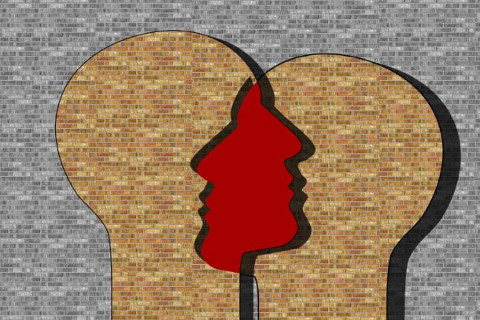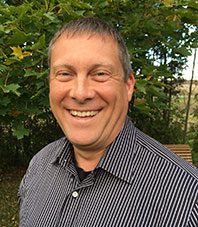What Is The Unconscious Mind?
The unconscious mind holds the key to mental, emotional and physical health. To discover and understand yours is to help you in your journey of healing.
Though there are some who deny the existence of the unconscious mind but by defining it you will better understand the reasoning behind it and its importance.
The unconscious mind is not unconscious in the sense of being in some state of a coma, rather it is better understood as that part of our brain or our soul that our conscious or rational, cognitive mind is to some degree unaware of. The unconscious mind is that part of the brain and soul of a person that has been called as the right brain, the imaginative, playful, creative, emotional and most importantly the feeling side of the brain. This unconscious mind is dominantly seated in the Limbic system of the brain. That being said the deeper we go in the brain such as the brain stem the deeper the unconscious mind goes.

The Polyvagal Theory
There is new evidence and thus new theories that have been developed such as the most significant one in recent years by Dr. Stephen Porges, who is director of the Brain-Body Center at the University of Illinois in Chicago, The Polyvagal Theory. His theory reveals physical evidences of possibly the deepest levels of the unconscious mind. His theory identifies two branches of the vagus nerve, which is the tenth cranial nerve also located partly in the brain stem, which holds significant memories and in particular traumatic memories that are associated with PTSD.
He postulates these two branches of the vagus nerve as originating in the medulla which is part of the brain stem. These two branches have to do with deep seated social and anti-social behaviours found in a person. The vagus nerve is a primary component of the the autonomic nervous system which we have understood as the sympathetic and parasympathetic nervous systems which regulates our sense of danger or safety. The parasympathetic nervous system when engaged is like a brake on a car which enables us to relax and to become calm. The sympathetic nervous system helps us to be aroused when danger or threat is perceived which is like the gas pedal in our car. The problem is when we have been “traumatized” and develop PTSD our nervous system becomes stuck in the gas pedal mode, or the fight, flight, or shutdown which is an overstimulation of the sympathetic nervous system.
What is the difference between the unconscious mind and the subconscious mind?
Some mental health professionals and s would argue that the subconscious mind is a lay term, others use them interchangeably while still others see them as uniquely different yet interconnected.
These terms are theoretical and yet can be observed in human thinking experience. It is possible to understand that though we have present awareness and present consciousness, known as the conscious mind, yet there are some memories or mental functions that lie just beneath the surface of conscious thinking, this could be understood as the subconscious mind because there is more access to these thoughts, while the unconscious mind can be both that which we have deeply repressed and that which is felt memory or sensorimotor memory which is stored as felt memory or memory that can be seen when a person has environmental queues or triggers that cause physiological and emotional responses such as even proposed in the Polyvagal Theory.[1][2] An example of this can be seen in people when they enter a room filled with strangers where one person begins to perspire, heart and breath rate increases they feel like the people are unfriendly or dangerous and feel at least initially uncomfortable. Yet, another person who does not have these types of unconscious mind memories [Polyvagal Theory] can enter the same room but have an emotional and physiological reaction of being calm and feeling safe where the heart rate, perspiration rate, blood pressure, etc. shows no indication of heightened or threatened response.
The heart
Throughout time in various cultures and sacred writings the heart has been a subject of discussion. I am not talking about the physical heart pump per se though there does appear to be more evidence showing that our physical heart does play a role in our make up as well.
First let’s look at a sacred writing, in the book of Jeremiah the following statement is made which reveals some of our modern understanding of the unconscious mind which Sigmund Freud postulated. “The heart is deceitful above all things, and desperately sick; who can understand it?”[3]Further to that studies have been carried out by the Heart Math Institute out of California[4] revealing a definite connection between the brain and the heart. There are no other two organs in the body that possess more nerve connections than that between the brain and the heart. The heart also contains not only brain cells but also synapsis which indicates a presence of stored memories.
The concept of the unconscious mind or heart has evolved in understanding and today we have not only better theories, physical biological evidences but also better therapies that help resolve deep underlying issues of the unconscious mind.
Such therapies I am specifically referring to is:
- The Heart Coherence biofeedback technique
- Fraser’s Dissociative Table Technique
- Psychodynamic Therapy
- Emotional Freedom Techniques
- and others…
By denying the existence of the heart or the unconscious mind is to deny the complexity of the person. This understanding brings to light the beauty of creation the human and the possibilities of healing and transformation.
Transform your life today, at New Hope Counselling Centre we provide therapeutic help that is professional, confidential, results oriented, and compassionate. Book your appointment today and get the help you need.
Sources:
1.https://en.wikipedia.org/wiki/Polyvagal_theory#cite_note-Porges-1
2. http://stephenporges.com
3. Jeremiah 17:9, The ESV® Bible (The Holy Bible, English Standard Version®), by Crossway Bibles, a publishing ministry of Good News Publishers, 2001.
4. heartmath.org
 Written by James A. Miklos, MCC. James has been counselling providing mental health therapy for over 25 years. James has numerous publications and periodicals, he has also self-published the book, “The Biblical Art of Dream Interpretation”. He also is available for speaking engagements as well as conducting workshops and seminars as well.
Written by James A. Miklos, MCC. James has been counselling providing mental health therapy for over 25 years. James has numerous publications and periodicals, he has also self-published the book, “The Biblical Art of Dream Interpretation”. He also is available for speaking engagements as well as conducting workshops and seminars as well.
In addition, James Miklos holds memberships and accreditations with the following recognized organizations:
- College of Registered Psychotherapists of Ontario
- CASC – Canadian Association for Spiritual Care
- ACTA – The Association of Counselling Therapy of Alberta Registered as Counselling Therapist
- EMDR Canada
- EMDRIA
© 2021 James A. Miklos. All rights reserved. To copy or quote any of this material the entire citation and credit must be posted.
More Resorces To Better Your Life!





